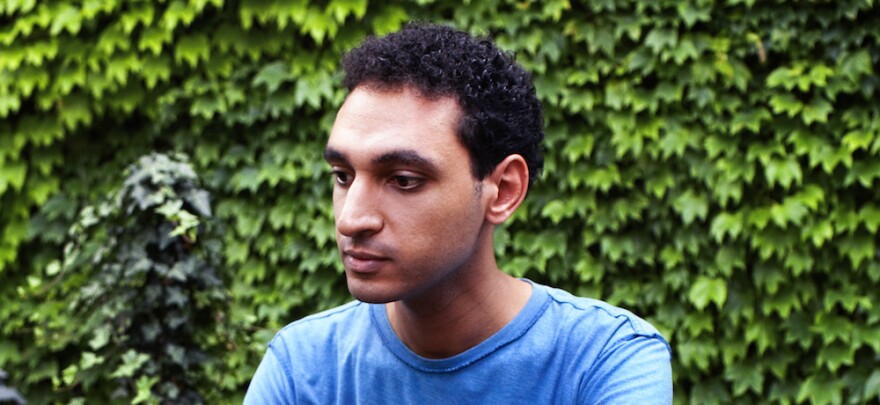My taste in music is probably the only area of my life that can be described as "conservative"—I tend to be a questioner, muckraker and troublemaker. But when it comes to music, I think we can't study or listen to Mozart and Beethoven enough.
Sadly, this predisposition means I can sometimes be dismissive of young artists working today.
Don't be like me. Take a few minutes to meet Arab-American composer Mohammed Fairouz and listen to his oratorio Zabur.
Zabur (Psalms) is scored for adult and children's choruses, orchestra, and tenor and baritone soloists. The texts are in English, by Najla Said, with Psalms 2 and 102 sung in Arabic.
The work was commissioned by the Indianapolis Symphony Orchestra and the Indianapolis Symphonic Choir in 2015.
Conducted by Eric Stark and recorded in Indianapolis, Zabur was released by Naxos.
Give it a listen. I don't know the last time I've been so moved.
The Arabic Psalms frame the relationship between Dawoūd (David), "a young poet, blogger and writer ... stuck in a shelter with a group of men, women and children and also with his companion Jibreel (Gabriel)," Fairouz writes of his work. "Zabur is the Arabic word for the Psalms and by setting the texts in Arabic, we chose to return the Psalms to one of the original ancient languages of the Middle East."
Here's a devastating chorus for the children, sung near the end of Zabur.
"Can we tell them we are hungry? I would like to have some chocolate! Can we tell them we cannot sleep, because it is loud? Do they know we didn't do anything? Can we tell them that? Can we tell them how much it hurts our hearts to see our parents die before our eyes?"
-VTs
There's a huge variety of sound in this hour-long work: The comfort of rocking in the orchestra against searing texts. The initial triple forte cry from Psalm 2: "Why do the nations conspire and the peoples plot in vain?"
Zabur ends with these lines from Psalm 102, sung in Arabic: "The children of your servants will live in your presence, their descendants will be established before you."
It's a perfect conclusion to what Fairouz describes as, "a sort of war requiem, document(ing) the tragedy of war and how war touches all human beings and, most notably, the children."








